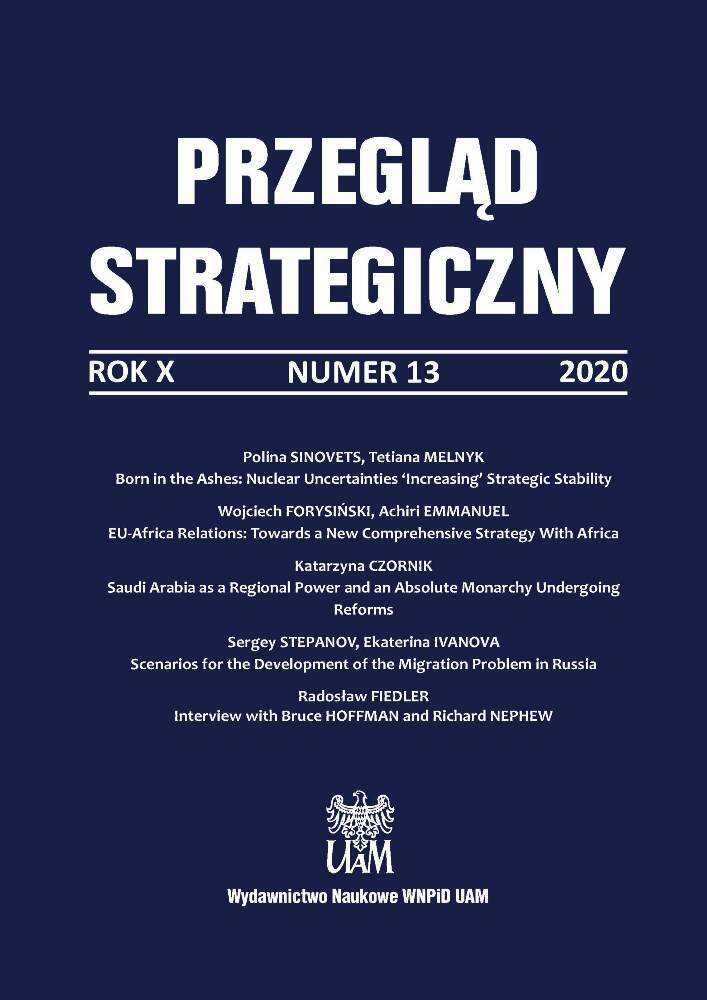Abstract
The purpose of the article is the analysis of the state of energy security in the states of the Black Sea region in terms of the geopolitics and geostrategies of different regional and international political forces. Energy security is interpreted as the provision of steady energy supply from different types and sources (diversification) and energy market stability. Energy security analysts have always emphasized the importance of energy and energy policies, but too often focused solely on the utilization of resources as an element of political power. The problem of energy and its security is often viewed as vague, misunderstood or unsolvable, with countries hostage to threats with hazardous consequences. A quality selection of analytical and statistical resources has been made to identify energy security problems, such as the growing dependence of most advanced industrial countries on oil and gas supplies, and increasing demand from developing economies for fuel. The objectives of the study are based on the notion of the regional division between the states of the Black Sea basin. The results of the study are founded on the analysis of the operations of the Black Sea Economic Cooperation Organization and the geostrategic and geopolitics interests of the major players in the Black Sea region in the context of their energy security. The article is concluded with the suggestion of a potential solution to the problem of uneven geographic distribution of energy resources such as oil and gas on the political map of the world. The political instruments for influencing energy security in the EU, NATO, USA, Russia and Turkey are analyzed in the article. Recommendations for reducing potential conflicts in the Black Sea region and minimizing the impact on the energy security of the states involved by providing a steady energy supply are given.
References
Alekseeva N. (2018), In one stream: if the launch of Trans Anatolian TANAP will influence Russian gas export (rus.), RT in Russian, 18 May.
Baku–Tbilisi–Ceyhan oil pipeline named after Heydar Aliyev, 17 April 2009, https://ria.ru/20090417/168381928.html (31.03.2020).
Black Sea Economic Cooperation, 25 June 1992, https://www.bsec-organization.org (01.03.2020).
Black Sea region, https://www.mfa.bg/bg/3108 (01.03.2020).
Bucharest Declaration on the Black Sea Research and Innovation Agenda, https://ec.europa.eu/research/bioeconomy/pdf/bucharest_declaration_blacksea.pdf (01.03.2020).
Bucharest: the place where answers will form?, https://www.nato.int/docu/review/2008/03/ART2/EN/index.htm (01.03.2020).
Bzhezinsky Z. (2010), The Grand Chessboard, Moscow.
Countering malign Кremlin influence (CMKI) development framework, https://www.usaid.gov/sites/default/files/documents/1863/CMKI_Development_Framework_pdf (01.03.2020).
Dechev T. (2019), Chess of the Russian Tsar on the gas chessboard, https://news.bg/comments/shah-na-ruskiya-tsar-varhu-gazovata-shahmatna-daska.html (01.08.2019).
Dulgerova N. (2009), Caucasian Gambit, Sofia.
European Parliament – Report on the EU Black Sea Strategy (2010/2087 (INI)), https://www.europarl.europa.eu/sides/getDoc.do?pubRef=-//EP//TEXT+REPORT+A7-2010-0378+0+DOC+XML+V0//BG (01.03.2020).
International Organisation “BLACKSEAFOR”, http://www.mfa.gov.tr/blackseafor.en.mfa (01.03.2020).
Kovaleva A. (2017), Geopolitics and geostrategy, https://www.geopolitica.ru/article/geopolitika-i-geostrategiya (01.03.2020).
Lyubcheva M. (2010), The Black Sea region in EU policies, https://library.fes.de/pdf-files/bueros/sofia/07836.pdf (01.03.2020).
Maltsev А. (2019), RAND analyzed Russia’s non-existent strategy in the Black Sea region, https://eurasia.expert/rand-nesushchestvuyushchuyu-strategiyu-rossii (11.11.2019).
NATO Summit participants satisfied with results, but disagreements remain, 04 April 2008, https://www.dw.com/ru/участники-саммита-нато-довольны-результатами-но-разногласия-остаются/a-3245724 (04.04.2020).
Norman Z. (2020), The Southern gas transmission corridor» is of great importance not only for Italy but for all Europe, https://energoinnovatsia.rf/ekspert-yuzhnyj-gazovyj-koridor-imeet-bolshoe-znachenie-ne-tolko-dlya-italii-no-i-dlya-vsej-evropy (01.03.2020).
Putin and Erdogan opened the Turkish Stream, 08 January 2020, https://www.rbc.ru/business/08/01/2020/5e15cbc79a7947ba0daddc73 (01.03.2020).
Sea oil and petroleum product terminals in Russia, https://energybase.ru/terminal/index?page=1 (01.03.2020).
The agreement between the Government of the Russian Federation and The Government of the Republic of Serbia on military and technical cooperation, http://docs.cntd.ru/document/420234784 (01.03.2020).
The Black Sea Economic Cooperation Organization (BSEC), http://www.mfa.gov.tr/the-black-sea-economic-cooperation-organization-_bsec_en.mfa (01.03.2020).
The leaders of “The Five” countries signed The Convention on the legal status of the Caspian Sea, https://russian.rt.com/ussr/news/544569-kaspiiskii-sammit-podpisanie-deklaraciya (01.03.2020).
Southeast Europe, https://www.mfa.bg/bg/3107 (01.03.2020).
The state statistical of committee of the Republic of Azerbaijan, About energy balance of Azerbaijan in 2018, https://www.stat.gov.az/source/balance_fuel/?lang=en (01.03.2020).
The World Energy Strategic Yearbook, https://yearbook.enerdata.ru/oil-products/world-oil-balance-trade-data (01.03.2020).
“There was no such squadron”: NATO ships entered the Black Sea, 28 March 2019, https://www.gazeta.ru/army/2019/03/28/12271586.shtml (01.03.2020).
Turkish-Russian declaration on Operation Black Sea Harmony, https://www.osce.org/fsc/23842?download=true (01.03.2020).
US and NATO expand their military presence in the Black Sea, 5 March 2019, https://www.vesti.bg/sviat/sasht-i-nato-razshiriavat-voennoto-si-prisystvie-v-cherno-more-6092768 (01.03.2020).

